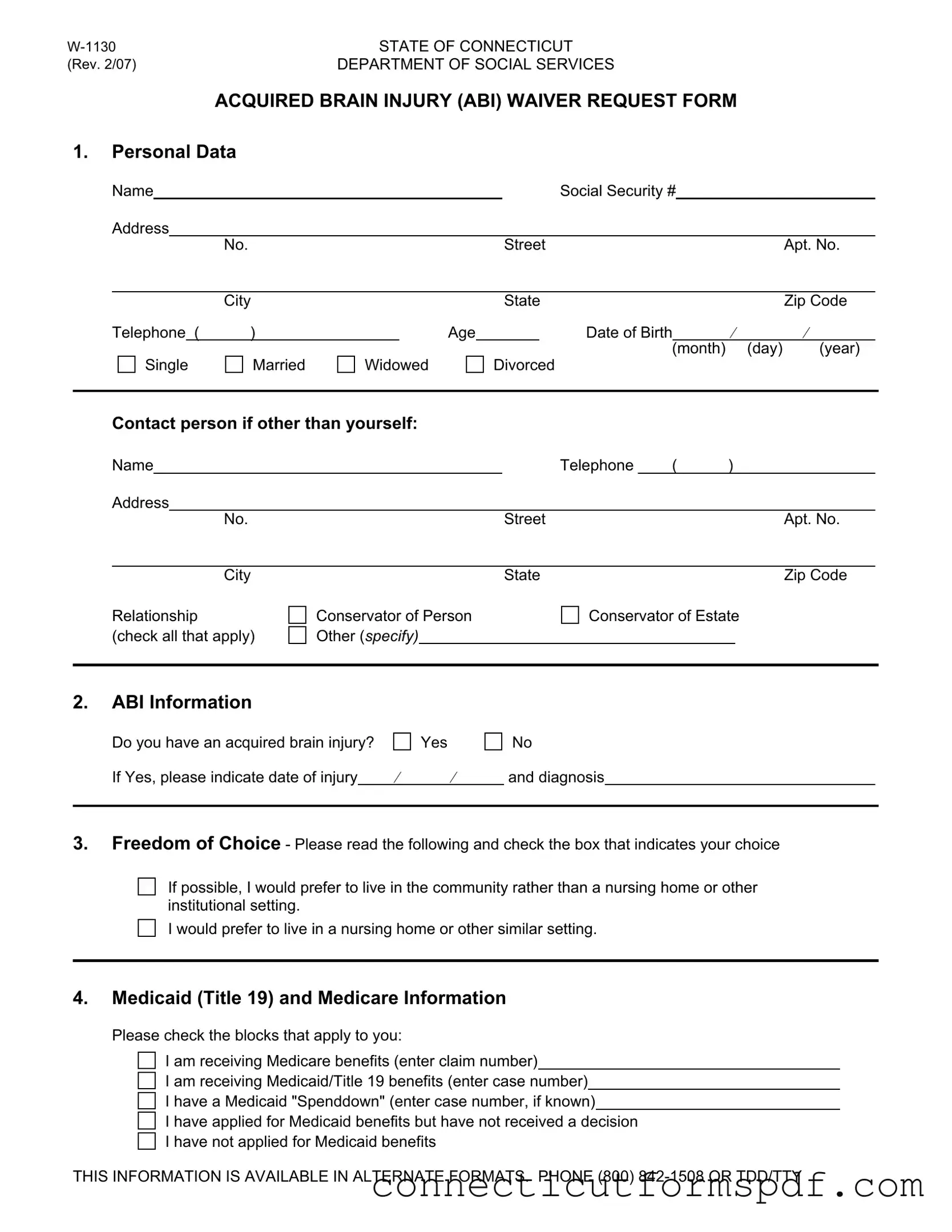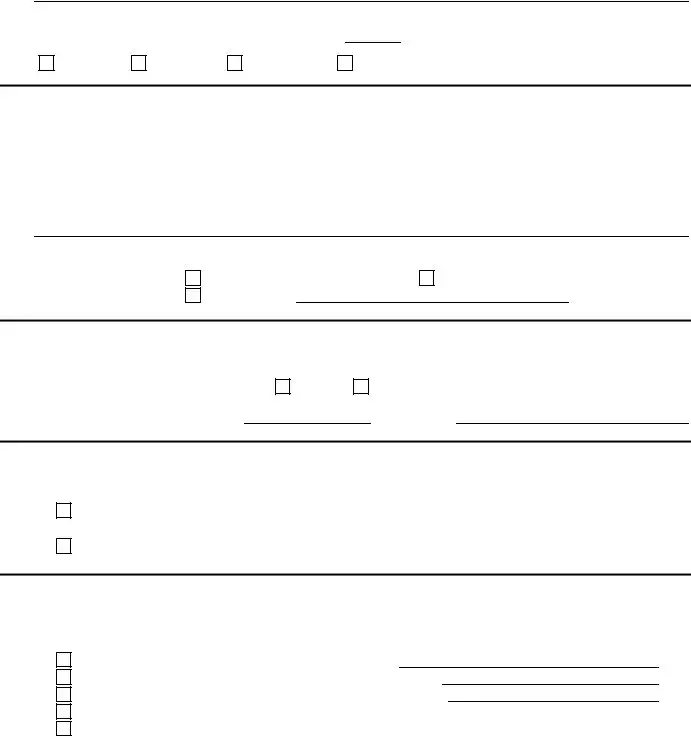Fill Out a Valid Connecticut W 1130 Template
The Connecticut W-1130 form is a crucial document processed through the State of Connecticut's Department of Social Services, specifically tailored for individuals seeking assistance under the Acquired Brain Injury (ABI) Waiver Request program. It captures essential information ranging from personal data, ABI specifics, preferences for living arrangements, to Medicaid/Medicare details, and financial information, thereby facilitating the provision of tailored support to meet the unique needs of applicants. For those looking to access services designed to support individuals with acquired brain injuries in living independently within the community, filling out this form is a pivotal first step.
Ready to make a significant move towards independence and supportive living? Click the button below to begin filling out your Connecticut W-1130 form.

Fill Out a Valid Connecticut W 1130 Template

Your form is not complete yet
Edit and complete Connecticut W 1130 online in just a few steps.

